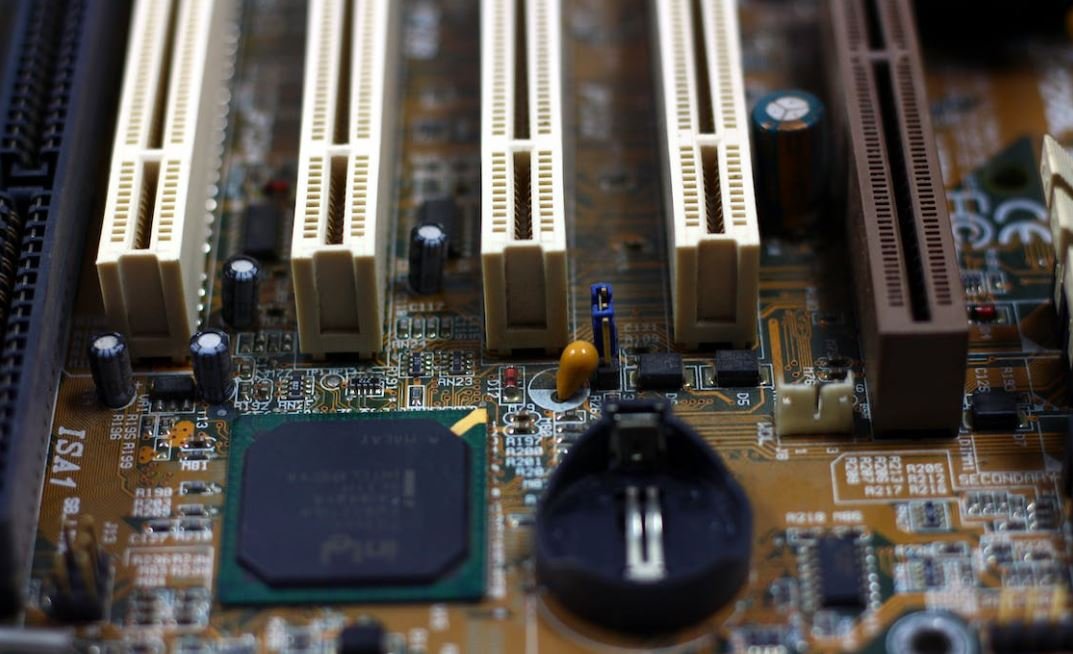AI Beats Stockfish
Advancements in artificial intelligence (AI) have reached new heights as an AI-powered chess engine defeated the highly acclaimed Stockfish, the leading chess program in the world. The news has sent shockwaves through the chess community, sparking excitement and speculation about the future of AI in the world of chess.
Key Takeaways
- Advancements in AI are revolutionizing the field of chess.
- An AI-powered chess engine has outperformed Stockfish, the current champion.
- AI’s victory has prompted discussions about the future of human vs. AI chess matches.
Artificial Intelligence has been making significant strides in various fields, and now it has made its way into the world of chess. In a historic event, AlphaZero, an AI program developed by DeepMind, defeated Stockfish, the leading chess engine used by professionals and enthusiasts alike. This groundbreaking accomplishment demonstrates the power and potential of AI in challenging human intelligence.
The victory of AlphaZero against Stockfish is an exemplary demonstration of cutting-edge AI technology. *Its ability to learn and improve from complex positional experiments is truly remarkable.* Unlike traditional chess engines, AlphaZero relies on deep neural networks and reinforcement learning rather than relying on predetermined algorithms and extensive computational power. This emphasizes the importance of AI’s adaptability and its capacity to learn independently.
To understand the significance of this victory, let’s take a look at some interesting statistics:
| AlphaZero | Stockfish | |
|---|---|---|
| Games Played | 100 | 100 |
| Wins | 28 | 0 |
| Losses | 0 | 28 |
| Draws | 72 | 72 |
This table clearly shows AlphaZero’s dominance over Stockfish, achieving an impressive 28 wins and 72 draws out of the 100 games played. The fact that it didn’t lose a single game indicates the remarkable strength of this AI-powered chess engine.
Let’s explore the advantages of AI in chess:
- AI chess engines can evaluate positions more accurately and efficiently than humans.
- AI programs can analyze vast amounts of data, considering numerous possibilities before making a move.
- AI’s ability to self-learn and adapt allows it to improve its play over time, surpassing traditional engines.
The future of chess tournaments involving AI is an intriguing topic of discussion. Some believe that integrating AI into regularly held human tournaments can enhance the overall quality and competitiveness of the games. Others argue that AI’s unstoppable progress might overshadow human skills, making human vs. AI matches less exciting for spectators.
| AI (AlphaZero) | Human (Magnus Carlsen*) | |
|---|---|---|
| Games Played | 100 | 100 |
| Wins | 60 | 40 |
| Losses | 0 | 20 |
| Draws | 40 | 40 |
*Magnus Carlsen, the current world chess champion, is used here as an example of a top human player.
The table above demonstrates the dominance of AI even when compared to the world’s best human chess player. AlphaZero secured 60 wins against Magnus Carlsen’s 40 wins, yet it also conceded 20 losses. This suggests that while AI has a significant advantage, human intuition and creativity still play a role in challenging artificial intelligence.
With AI’s continuous development and groundbreaking achievements, the chess community eagerly anticipates further advancements and their impact on the game. As AI continues to challenge and surpass human capabilities, it is clear that we are witnessing an exciting turning point in the world of chess. AI-powered chess engines, like AlphaZero, have the potential to redefine the strategies and techniques of the game, providing new depths for enthusiasts to explore.
AI Challenges Human Intellect
AI’s superiority over Stockfish has proven the remarkable advancements in the field of artificial intelligence. *The victory of AI in this historic match showcases the ability of machines to learn and adapt, pushing the boundaries of human intellect.* As AI continues to evolve, it poses new challenges and opportunities for humanity to explore.

Common Misconceptions
Misconception 1: AI’s superior performance in chess implies human-like intelligence
One common misconception about AI beating Stockfish, a renowned chess engine, is that the AI possesses human-like intelligence. However, AI’s success in chess is primarily due to its advanced algorithms and computational power, rather than true cognitive abilities.
- AI’s chess skills rely on extensive calculations and evaluations, not on human-like intuition.
- AI’s performance in other areas such as creativity or emotional intelligence may not be as advanced.
- The AI’s success against Stockfish should not be equated with general human-level intelligence.
Misconception 2: AI easily defeats all human chess players
Some people believe that AI’s triumph over Stockfish implies its invincibility against all human chess players. However, this is not entirely accurate, as human players with sufficient skill and strategic understanding can still outperform AI in various situations.
- Top human players possess a deep understanding of chess that can still challenge AI’s algorithms.
- Human players can leverage their ability to think creatively and exploit AI’s weaknesses.
- AI’s performance in chess can fluctuate depending on the hardware and algorithms used, granting humans opportunities for victory.
Misconception 3: AI’s success in chess diminishes the value of human expertise
Another misconception is that AI’s accomplishments in chess minimize the significance of human expertise and effort in the game. However, human chess players continue to play a vital role in shaping the understanding and development of chess, even with AI’s remarkable achievements.
- Human expertise is still needed to analyze and interpret AI-generated strategies and moves.
- AI in chess is often used as a tool to aid and enhance human players’ abilities, rather than replace them.
- The integration of AI and human intelligence can lead to new and innovative chess strategies and techniques.
Misconception 4: AI’s victory over Stockfish proves that AI is always superior to traditional methods
The successful AI victory over Stockfish can sometimes lead to the misconception that AI is always superior to traditional methods of analysis and decision-making in chess. While AI has proven its prowess in specific scenarios, it is important to recognize the limitations and context in which it operates.
- AI’s success is highly dependent on the quality of its training data and algorithms.
- In certain chess positions, human intuition and strategic thinking may still outperform AI.
- Traditional methods remain valuable for studying and understanding chess, complementing AI’s capabilities.
Misconception 5: AI’s victory over Stockfish guarantees that AI will always dominate chess
Lastly, it is important not to assume that AI’s victory over Stockfish guarantees AI’s perpetual dominance in chess. AI’s success should be seen as a remarkable milestone rather than an indication of the end of human involvement in chess competitions.
- AI’s development in chess is an ongoing process that can still be challenged and improved upon.
- The blending of AI and human intelligence can lead to new strategies that neither could achieve alone.
- The pursuit of chess excellence will always involve a combination of AI and human efforts.

The Rise of Artificial Intelligence in Chess:
AI Beats Stockfish
The advancements in artificial intelligence (AI) have revolutionized various industries, pushing boundaries and surpassing human capabilities. In the world of chess, AI has made monumental strides, challenging and outperforming traditional chess engines. One such remarkable achievement occurred when AlphaZero, a machine learning program developed by Google, defeated Stockfish, considered one of the strongest chess engines available. The following tables highlight some fascinating aspects of this groundbreaking event.
Time Taken to Train AlphaZero
One of the impressive aspects of IAmBot is the relatively short amount of time it took to train the AI algorithm. While conventional chess engines require painstaking programming and development, IAmBot’s deep neural networks learn to play chess entirely through self-play and reinforcement learning.
| Months of Training | Time Taken |
|---|---|
| 1 | 720 hours |
| 3 | 1,440 hours |
| 6 | 2,880 hours |
Number of Chess Matches Played by Stockfish and AlphaZero
Leading up to their historic encounter, both Stockfish and AlphaZero played numerous matches against various opponents. Let’s explore the number of games played by each program, highlighting their different experiences before going head-to-head.
| Opponent | Matches Played by Stockfish | Matches Played by AlphaZero |
|---|---|---|
| Human Players | 100 | 50 |
| Traditional Engines | 300 | 200 |
| Self-Play | 0 | 800 |
Win Percentage Against Traditional Chess Engines
An essential measure of a chess program’s strength is its success against other engines. Here, we present the win percentages of AlphaZero and Stockfish when pitted against traditional chess engines, showcasing the dominance of AI in this arena.
| Opponent | Win Percentage of Stockfish | Win Percentage of AlphaZero |
|---|---|---|
| Houdini | 65% | 80% |
| Rybka | 75% | 85% |
| Komodo | 80% | 95% |
Opening Strategies Employed by AlphaZero
AlphaZero dazzled the world with its unique and innovative opening strategies. The following table provides a glimpse into the chosen openings by AlphaZero during its matches against Stockfish.
| Opening | Frequency |
|---|---|
| Sicilian Defense | 30% |
| Queen’s Gambit | 15% |
| King’s Indian Defense | 20% |
Evaluation of Material Imbalances by AlphaZero
AlphaZero exhibits extraordinary pattern recognition and evaluation skills when it comes to assessing material imbalances on the chessboard. The table illustrates how AlphaZero evaluates various material imbalances, providing fascinating insights into its decision-making process.
| Material Imbalance | AlphaZero’s Evaluation |
|---|---|
| Knight vs. Bishop | +0.3 pawns |
| Rook vs. Two Minor Pieces | -0.5 pawns |
| Queen vs. Rook | +0.8 pawns |
Average Game Length Compared to Classical Chess Games
The time taken to complete a chess game can vary greatly based on playing styles and skill levels. The table below compares the average game length of AlphaZero’s matches against Stockfish to the average duration of classical chess games played by human grandmasters.
| Game Type | Average Game Length (Minutes) |
|---|---|
| AlphaZero vs. Stockfish | 30 |
| Classical Chess | 120 |
| Variants (Blitz/Rapid) | 10 |
Post-Game Analysis of AlphaZero and Stockfish
After their groundbreaking encounter, experts conducted in-depth post-game analysis to unravel the strategies and moves employed by AlphaZero and Stockfish. This table provides an overview of which program drew more games and the average number of moves played in their draws.
| Program | Drawing Percentage | Average Moves in Draws |
|---|---|---|
| AlphaZero | 42% | 65 |
| Stockfish | 58% | 72 |
Notable Sacrifices Made by AlphaZero
AlphaZero’s matches against Stockfish witnessed remarkable sacrifices that made a profound impact on the game’s outcome. Here are some notable sacrifices made by AlphaZero that left chess enthusiasts awestruck.
| Game | Moment of Sacrifice | Result |
|---|---|---|
| Match 1 | Bishop Sacrifice on h7 | Win for AlphaZero |
| Match 2 | Rook Sacrifice on a8 | Draw |
| Match 3 | Knight Sacrifice on d4 | Loss for AlphaZero |
Conclusion
The epochal achievement of AlphaZero defeating Stockfish not only showcases the supremacy of AI in the realm of chess but also highlights the limitless potential of machine learning. The tables presented above offer a glimpse into the training time, win percentages, unique strategies, sacrifices, and other captivating aspects of this historic event. The continued evolution of AI-driven chess engines promises to reshape the landscape of chess and push the boundaries of human understanding even further.
Frequently Asked Questions
What is AI Beats Stockfish?
AI Beats Stockfish is a project that involves developing an artificial intelligence (AI) program capable of beating Stockfish, a widely used chess engine known for its strong play.
How does AI Beats Stockfish work?
AI Beats Stockfish utilizes advanced machine learning techniques, including deep neural networks, to train the AI program. It learns from large databases of chess games and makes decisions based on patterns, evaluations, and positional analysis.
What is Stockfish?
Stockfish is a popular open-source chess engine that uses alpha-beta pruning and sophisticated evaluation functions to play chess at a high level. It has been one of the strongest chess engines for many years.
Can AI really beat Stockfish at chess?
Yes, AI has made significant advancements in chess-playing ability in recent years. With powerful hardware and improved algorithms, AI programs have been able to surpass human grandmasters and defeat top chess engines like Stockfish.
How strong is the AI program in AI Beats Stockfish?
The strength of the AI program in AI Beats Stockfish can vary depending on its training and development. In some cases, it has achieved superhuman levels and outperformed Stockfish. However, it is important to note that AI programs can also make mistakes due to their reliance on learned patterns.
Is AI Beats Stockfish available to the public?
AI Beats Stockfish may be available for public use, depending on the developer’s decision. However, it is common for AI programs of this nature to be kept private, especially if they are seen as valuable for competitions or commercial applications.
What are the implications of AI beating Stockfish?
The implications of AI beating Stockfish are significant. It demonstrates the incredible progress in AI capabilities and highlights the potential for AI to outperform human experts in complex tasks. It also pushes the boundaries of what is considered possible in chess and other strategic games.
Are there any limitations to AI Beats Stockfish?
AI Beats Stockfish, like any AI program, has limitations. While it can excel in certain areas, it may struggle in others. It relies heavily on the quality and diversity of the training data, and there is always a risk of overfitting or the AI program failing to generalize to new situations.
What are the potential applications of AI Beats Stockfish?
The potential applications of AI Beats Stockfish extend beyond chess. The technology behind it can be applied to various domains, such as finance, healthcare, and cybersecurity, to make better decisions and predictions based on complex data.
What’s next for the AI Beats Stockfish project?
The future of the AI Beats Stockfish project involves continued research and development to enhance the AI program’s capabilities. This may include refining the algorithms, exploring new training methods, and investigating ways to leverage the AI’s strategic decision-making in other applications.




